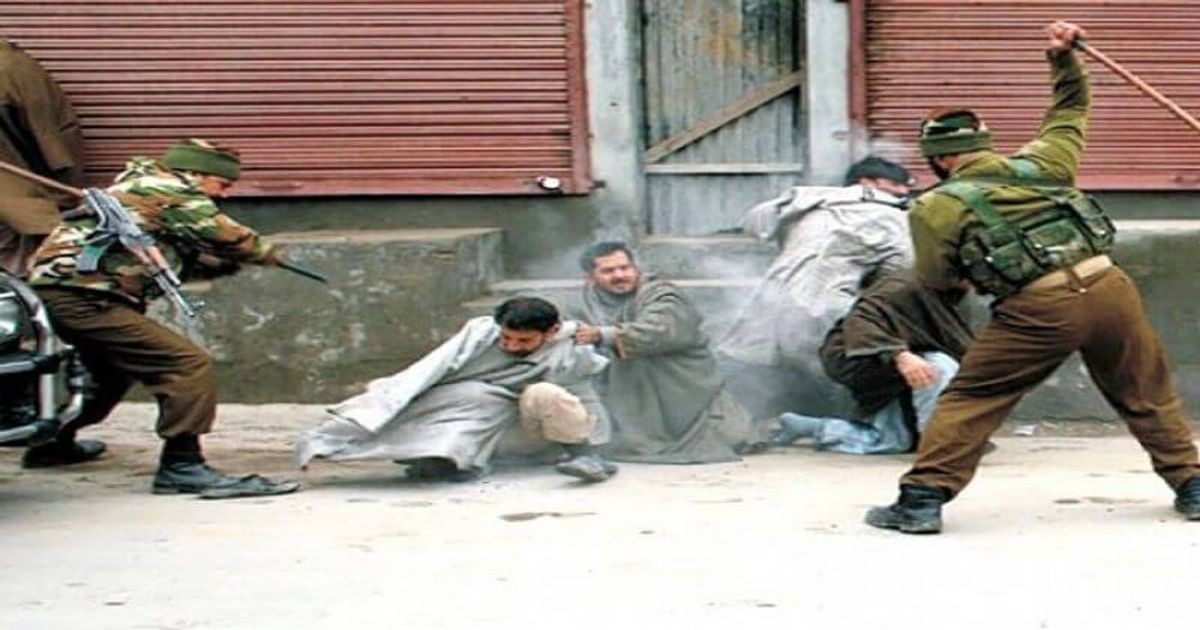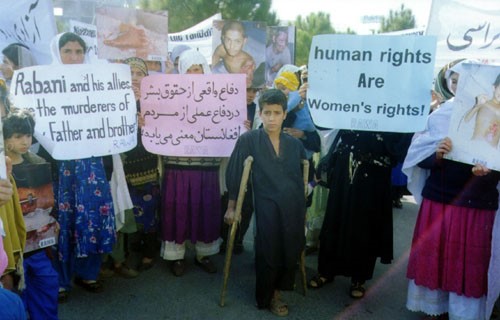Now Reading: Comparative Analysis of Enforcement of Human Rights in India and Afghanistan
-
01
Comparative Analysis of Enforcement of Human Rights in India and Afghanistan

Comparative Analysis of Enforcement of Human Rights in India and Afghanistan
Human rights are the fundamental rights necessary for the existence of human beings. Etymologically, human rights entail two words, ‘Human’ and rights’. Simply put, Human rights are referred to as those rights which are inherited by a person on the ground that belongs to the race of humans. The United Nations Human Rights, Office of the High Commissioner defines Human rights as those rights which are universally inherited by all humans and not granted by any state or government. Humans are entitled to these rights irrespective of their race, colour, gender, nationality, language, etc. These rights broadly range from the right to life, liberty, education, etc. The Universal Declaration of Human Rights (UDHR) is the first international instrument that recognizes and protects the Human rights of all individuals. The document stands as a symbol reflecting the ideals that human rights are universal and indivisible. International laws are highly influenced by this guarding instrument. It was adopted in 1948 by the UN.[1]
The Universal Declaration of Human rights has been rectified by a number of countries and despite their developing nature, many countries in the South Asian continent have adopted human rights and are making genuine efforts for the same. India and Afghanistan are both such countries.
INDIA AND AFGHANISTAN: HUMAN RIGHTS ANALYSIS
India is the world’s largest democracy. With a population of over a billion, the implementation of human rights becomes a very daunting task for the country. India has a played an active role at an international level in the promotion and protection of Human rights. It is a signatory to a number of International Conventions including the Universal Declaration of Human rights, International Covenant of Civil and Political Rights, International Covenant on Economic, social and cultural rights, Convention on rights of the child, and the Convention on the elimination of all forms of discrimination against women. Furthermore, India is also a signatory member of the Convention against Torture and Other Cruel, Inhuman or Degrading Treatment or Punishment which is also known as the United Nations Convention against Torture (UNCAT).

(Source: https://www.globalvillagespace.com)
Human Rights as a fundamental element are enshrined in Afghanistan’s constitution however, the same has always been a topic of conflict in the country. In chapter two of the Constitution, the bill of rights venerates the rights to life and liberty being protected constitutionally. Also since 1987, Afghanistan has been an active member of the United Nations Convention against Torture. On January 24, 1983, Afghanistan sanctioned the International Covenant on Civil and Political Rights (ICCPR) and the International Covenant of Economic, Social, and Cultural Rights (ICESCR). ICCPR and ICESCR are two important treaties that pledge the benefit of basic human rights and freedom from discrimination of all kinds to all people irrespective of their gender, caste, or ethnicity. The Afghan Independent Human Rights Commission (AIHRC) was also set up in the year 2001, as an institution to protect human rights and to probe issues of violation of human rights and other war crimes.[2]
(Source: http://www.rawa.org/dec999.jpg)
Despite the presence of several institutions acting as watchdogs against human rights violations in developing nations like India and Afghanistan, there is still a long way to go. In Afghanistan, people not only face several kinds of Human rights violations but are also subjected to Taliban decrees which intensify the human rights abuse and makes the state of affairs even worse for women due to discriminatory gender practices. The existing armed violations supplemented by the complex nature of the prevailing turmoil have resulted in massive suffering of human lives. Further forceful displacements based on ethnicity, refugees migration to Pakistan and Iran and their consequent drudgery, capricious arrests and detentions of civilians leading to executions, use of arms on civilians, systematic abuse of women rights based on gender to control all spheres of their existence by Taliban, inhuman treatments, severe punishments, lack of the freedom of expression, association, religion and liberty are some of the gravest concerns which are against the very spirit of humanitarian laws.[3]
In India, numerous basic human rights violations are witnessed which include, unlawful and discretionary killings, including extrajudicial killings executed by police; torment and instances of pitiless, brutal, or debasing treatment or discipline by some police and jail authorities; subjective capture and confinement by government specialists; unforgiving and perilous jail conditions; political detainees or prisoners in specific states; limitations on opportunity of articulation and the press, including savagery, dangers of viciousness, or baseless captures or arraignments against writers, utilization of criminal criticism laws to indict web-based media discourse, control, and website hindering; excessively prohibitive principles on nongovernmental associations; limitations on political support; far and wide defilement at all levels in the public authority; absence of examination of and responsibility for savagery against ladies; violations including brutality and separation focusing on individuals from minorities.
In the Union territory of Jammu and Kashmir, the northeast and areas under the Maoists are severely impacted due to the presence of terrorists and separatist groups. The lack of any vital actions on part of the Government has further made the scenario despicable. Continued human rights abuses including killings of armed and police forces; torturing, killings and disappearances of civilians, baseless imprisonment and detention of people, denial of a fair trial, loathsome detention conditions, violation of freedom of expression and disrespect of civil liberties, and several such degrading and inhuman practices are still widespread.
Regardless of government endeavors to address such human rights abuses, an absence of responsibility and accountability for such behavior, adds to far-reaching exemption. Inquiry and investigations of individual cases have occurred, but inadequate authorization, lack of prepared officials of the police force, and an overburdened and overstretched court framework added to a very insignificant amount of actual convictions.[4]
SUGGESTIONS FOR IMPROVEMENTS IN INDIA:
It is true that Rome was not built in a day, similarly, an overnight change of the human rights scenario including its violation and enforcement is not possible. It is a very daunting task that requires an efficient commitment and tireless efforts before even meager improvement touches the surface of society. However, this area of improvement is not completely grey. There are certain improvement measures that can be adopted by a country like India to ensure that Human rights are guaranteed to all individuals.
- India is a very diverse country vis-à-vis religion, culture, language, etc. No doubt, the country preaches the ideal of ‘unity in diversity’ but this euphoric idea is not always prevailing. Many times, Human rights violation in India takes place because of the presence of this sharp diversity. Thus, it becomes extremely important that the law enforcement agencies along with those associated with the protection of Human rights adopt a neutral approach and are sufficiently trained in the fundamental concept of human rights and the sensitivity that the subject demands.
- India has a robust human rights mechanism and a strong theoretical infrastructure, however, there exists a cardinal gap between the vigorous statutes and the actual implementation of the law. There is a lack of efficiency in the enforcement of the human rights system giving rise to human rights violation cases. What is required is the introduction of strict accountability of the human rights implementation agencies, furthermore, there is a need for some degree of autonomy to be guaranteed to these institutions so that it can be fairly presumed that these organisational setups are impartial in nature.
- An independent watch-dog unit needs to set up who will be deliberated with the task of observing any human rights violation that takes place in the country and to observe any inconsistency in the government or its related agencies while addressing human rights issues. This neutral unit should be empowered to direct and assist the government. The unit may comprise of individuals well versed in human rights laws, having sufficient experience and are sensitive when dealing with human rights issues.
- In India, most human rights violations often go unaccounted for as there is lack of awareness among the common masses. To do away with this ignorance, a substantial structural change is to be achieved by introducing human right as an academic subject from the middle school level and encouraging human rights discussion forum and clubs at school levels.
- Furthermore, human rights education can be strengthened further by employing the impactful service of the Legal Aid clinics at district levels to moderate and facilities sessions on human rights education among different class of people.
- Good and powerful Human right literature and news should be made available in different languages and should be lucid. Funds should be allocated to ensure their availability and distribution are increased and circulated in all government schools and colleges.
- One important recommendation that is evident for Human rights protection; is the efficacy of the judicial system. The human rights violation cases should be dealt with as expeditiously as possible and stern actions to be taken against human rights violators.
- Lastly, a community participation policy needs to be adopted by the government in its approach to human rights cases. There is a need to create a forum of discussion, participation, and dialogue among the common masses at micro and macro levels so that their collective voices are channelized towards strong human rights policy drafting.
For a fast-developing country like India, what is required is that a balance is stricken between the overall development and basic rights to life of its citizen (Article 21).
[1]https://www.ohchr.org/en/issues/pages/whatarehumanrights.aspx (last visited 7:45 AM (IST), dated 18/06/2021)
[2] https://www.refworld.org/docid/3b00f24d14.html (last visited 8:30 PM, 18/06/2021)
[3] https://www.hrw.org/reports/2001/afghan3/afgwrd1001-04.htm#:~:text=Afghanistan%20ratified%20the%20CRC%20on,on%20the%20grounds%20of%20sex. (last visited 9:00 PM, dated 18/06/2021)
[4] https://www.state.gov/reports/2020-country-reports-on-human-rights-practices/india/ (last visited 9:45 PM, dated 18/06/2021)
Disclaimer: The opinions expressed in this article are those of the author.











